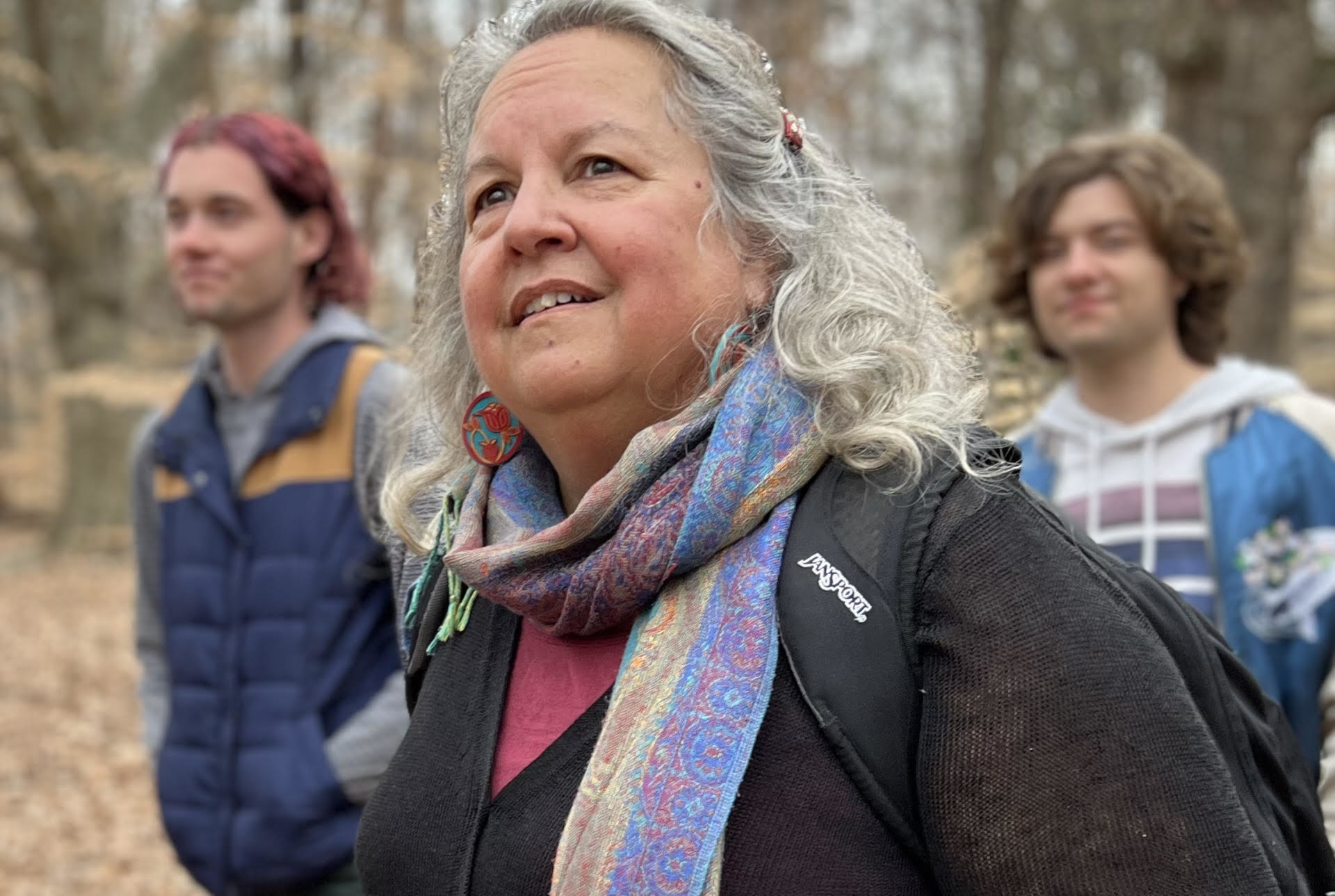
Best-selling author Robin Wall Kimmerer, whose book, Braiding Sweetgrass, is Guilford's Common Read this year, discussed our one-sided relationship with the environment.
Best-selling author and scientist Robin Wall Kimmerer told more than 800 people in Dana Auditorium on Wednesday that our relationship with the environment is “very much an abusive one” and asked us to shift our perspective.
Instead of asking what we can take from the planet, the author of Braiding Sweetgrass: Indigenous Wisdom, Scientific Knowledge and the Teachings of Plants told the audience of community members, faculty, staff and students that we need to be asking what we can give back.
“I think the question that has us on the precipice of climate catastrophe... is not the question of what more can we take, but what is the best? What does the earth ask of us? What can we give in return for the gifts that we have been given?”
“I think the question that has us on the precipice of climate catastrophe,” says Robin, “is not the question of what more can we take, but what is the best? What does the earth ask of us? What can we give in return for the gifts that we have been given?”
Robin says it’s important for the world to conserve our natural resources, but that strategy is no longer enough. “We need to talk about restoration more, healing the damage that we have done. Because the damage that we have done is so great that we have to heal that damage,” she says.
Robin is an enrolled member of the Citizen Potawatomi Nation, a distinguished professor and the founder of the director of the Center of Native Peoples and the Environment at the State University of New York College of Environmental Science and History. She is a recipient of a MacArthur Fellowship, often referred to as the “genius grant.”
Braiding Sweetgrass is Guilford College’s Common Read for the 2022-23 academic year. First year students read and discussed portions of the book in the fall.
In her talk, Robin said we need to shift our thinking about sustainability and how we think of the natural world. She said sustainability is often defined as “living in such a manner that we ensure the attainment and continued satisfaction of human needs.” To a colleague of hers, Robin said, sustainability means the way her tribe lives and has lived without any thought of “how to benefit from the environment, but rather exist alongside it.”
Earlier on Wednesday, a group of about two dozen Guilfordians took Robin on a walk through Guilford Woods, past ancient hardwoods and paths once used by enslaved Africans using the Underground Railroad to reach freedom in the North in the 19th century.
In winter, there are no flowers or leaves to compete for attention so the group saw and heard everything: The sing-song of Pine Warblers and Carolina Chickadees, salamanders under logs, a tight murder of American Crows ripping across the sky. During a break on the hike, the group was discussing the role of the Underground Railroad when a massive white oak, easily 150 years old, came crashing down maybe 100 feet away, taking out a few smaller trees with it.
Robin is a strong proponent of “two-eyed seeing,” a worldview that incorporates Indigenous wisdom with Western scientific tools to address the world’s greatest problems. She says the first step in achieving that two-eyed seeing is to rethink the language we use.
She argues the term “natural resources” paints the land as “raw materials yet to be converted into products we want them to be.” And the term “sustainability” sounds like “they are just trying to keep on taking.” Even the way the English language refers to animals and plants – as “it” -- is objectifying.
“If your grandma came on stage here for a minute, what if I said, ‘It’s bringing a cup of tea.’ We would never call our beloved grandmother ‘it’ because that would be so rude. I stole her personhood, right? I objectified her. I demeaned her by calling her ‘it.’ English gives us permission to speak in that way of our beloved grandmother Earth. We are, in essence, ‘it’-ing the world.”

